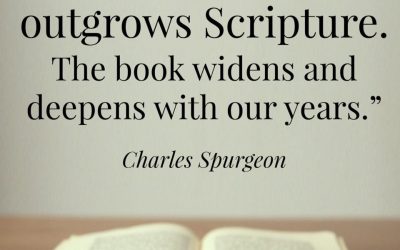Make the Vision Plain, the name of my website, comes from a verse in Habakkuk:
Write the vision; make it plain on tablets, so he may run who reads it. Habakkuk 2:2
I’ll have to admit that I chose this theme verse because it was about writing, which seemed a natural fit. Writing is what I have done most of my adult life and I hoped that my website would be a place to continue writing after I retired.
In the years since I first created my website, I have discovered many other reasons to love Habakkuk. Habakkuk is short (the 4th shortest book in the Old Testament) but packed with truth. And of course—and most obviously—the fact that God told Habakkuk to write is secondary to the actual message he wrote down.
Here are some of the reasons I have grown to love Habakkuk over the years.
Habakkuk is a man of prayer. Habakkuk is introduced to us through his prayer, which is not for his own needs. He is an intercessor whose heart breaks over the condition of the world around him: a world filled with violence, where God’s word and ways are no longer followed, and wickedness prevails. His world sound a lot like the one we live in and I find my own heart often crying out “How long, O Lord,” as I scan the local and world headlines.
Habakkuk receives an answer to his prayer central to redemptive history. To his intercessor, God entrusts a glimpse of his plans to purify his people by bringing a great evil against them. Habakkuk’s response is initially disbelief, but he continues to seek God for how this evil can produce faith.
God tells Habakkuk to write down what he is about to hear, and what he writes is that “the righteous shall live by his faith,” a verse referenced three times by New Testament writers:
- Romans 1:17 is the key that opened up the Gospel to Martin Luther and became the basis of the Protestant reformation: man is made just by God’s grace through Christ when grace is received by faith, and not by works.
- Galatians 3:11 highlights the foundational confusion of the Galatians between faith, which produces life, and works of the law, which produce death.
- Hebrews 10:38 emphasizes the ability of the believer to endure by faith and the hope that God will complete His work.
The woes Habakkuk records give us hope for final justice. God proclaims five woes over the Chaldeans, Israel’s enemies. Even though God plans to use them to purify his people, they will not ultimately escape judgment for their evil deeds. These woes give substance to our faith that the “judge of all the earth will be just” (Genesis 18:25). God demonstrates his concern about social justice issues in the pronouncement of woes on:
- Those who take from the poor (Habakkuk 2:6-8)
- Those who accumulate wealth with no thought for others (Habakkuk 2:9-11)
- Leaders who build using methods that abuse others (Habakkuk 2:12-14)
- Those who encourage others to abuse drugs and alcohol to take advantage of them (Habakkuk 2:15-18)
- Those who encourage others to trust in the works of their hands rather than the living God (Habakkuk 2:19)
Habakkuk looks forward to the final consummation of history. Habakkuk’s prayer in Chapter 3 looks back at God’s mighty acts in the Exodus, but even more to his final victory over not just Egyptians or Chaldeans, but over the enemy of enemies, that old serpent, Satan. Habakkuk 3:13 speaks of crushing the head of the house of the wicked, echoing the words God spoke in Genesis 3:15 that the seed of the woman would bruise Satan’s head.
Habakkuk gives us reason to sing in the darkest time. The final verses of Habakkuk’s prayer (3:17-19) are a powerful and joyful expression of faith and hope that is not based on anything the eye can see.
As a watchman who has been called to pray, this hope in the unseen has been life-giving to me since often all I can see with the natural eye is destruction and sorrow. Still, remembering Habakkuk, I can rejoice in the Lord and take joy in the God of our salvation.


2Cor 2:4 comes to mind
So we fix our eyes on not what is seen, but on the unseen, Since what is seen is temporary, but what is unseen is eternal”.
Having said that Lord help us to heed our brother
Habakkuk words, and not our own comfort or wicked ways!
Thanks for sharing Helen… this is so timely needed!!!
Thank Helen for sharing this… I needed this reminder!